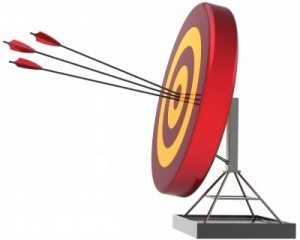How Do You React to Negative Feedback?
Years ago, a friend told me I was not spontaneous. At the time the person was trying to convince me to do something I didn’t want to do. I dismissed the feedback and didn’t think about it again until recently.
Years later a colleague observed that when I had a plan nothing annoyed me more than to change the plan. My first reaction to the criticism was to defend myself but after I thought about it a bit I realized my colleague was right. It was the same feedback I had had before using different language. Someone who wants to keep to a plan finds it hard to be spontaneous!
Negative feedback may be hard to accept. My first reaction was to reject the feedback and defend myself. Being defensive is natural but can lead to an argument with the other person. If you value this person’s opinion you won’t want to antagonize him/her.
Knowing how others see you is useful information. This person is doing you a favor and having him/her continue giving you feedback will be helpful to you in the future. Finding ways to deal with automatic behavior can help you to be happy at work.
One way to become more self-aware is to monitor yourself so that you start to notice what annoys you and what really works well for you. You may want to adjust some of your automatic behavior in order to get the results you want.
Another way to gain insight is to listen quietly to feedback others give you. Just because you listen to the feedback does not have to mean you agree with it. You don’t have to argue with the person giving the feedback – just accept it as feedback and thank them for giving it to you. It is up to you to consider the feedback and either accept it as valid or reject it.
If like me you receive similar feedback from several people it is important to really consider the feedback. The people giving me the feedback didn’t use the same words but they meant the same thing. If at the last minute someone wanted to do something different from what I planned I automatically said no.
What clinched the credibility of the feedback for me is that I began to notice how automatic that response was. The plan was made and I didn’t even want to listen to the new suggestion even if it meant saving time or getting a better outcome. Once I was aware of the problem and had a desire to change that behavior I decided to involve the colleague that had noticed it.
I asked the colleague to give me ongoing feedback on whether he noticed my behavior changing or not. You might even tell a few trusted colleagues about the change you are trying to implement and ask them to give you feedback on how you are doing. You want to make your own monitoring of your behavior a habit so you won’t slip back into old ways.
Why is being self-aware so important for leaders? Once you understand how to choose the behavior that gives you the results you want, you can cultivate and improve that skill so that you can become a more effective and inspiring leader.
A word of caution – don’t beat yourself up because you’ve used this automatic response so many times in the past. Being aware is the first step to self-management. Now you can do something about it and you will become the leader you know you can be.
What Does Your Behavior Say to Others?
Want to quickly determine what others see when they observe your behavior. The DISC can help you to identify behaviors that are working for you and ones that don’t work for you. It identifies your natural behavior and also the style you adapt to at work. After taking the DISC, you can develop a plan to adjust the behaviors that are not working. You’ll even learn how to talk to people with different styles so that they will react to you more positively. Since you will need to get along with all styles in the workplace knowing how to communicate more effectively is the first step in your leadership development. If you are interested in taking the DISC call me at 781-598-0388 or email me at asparker@asparker.com





